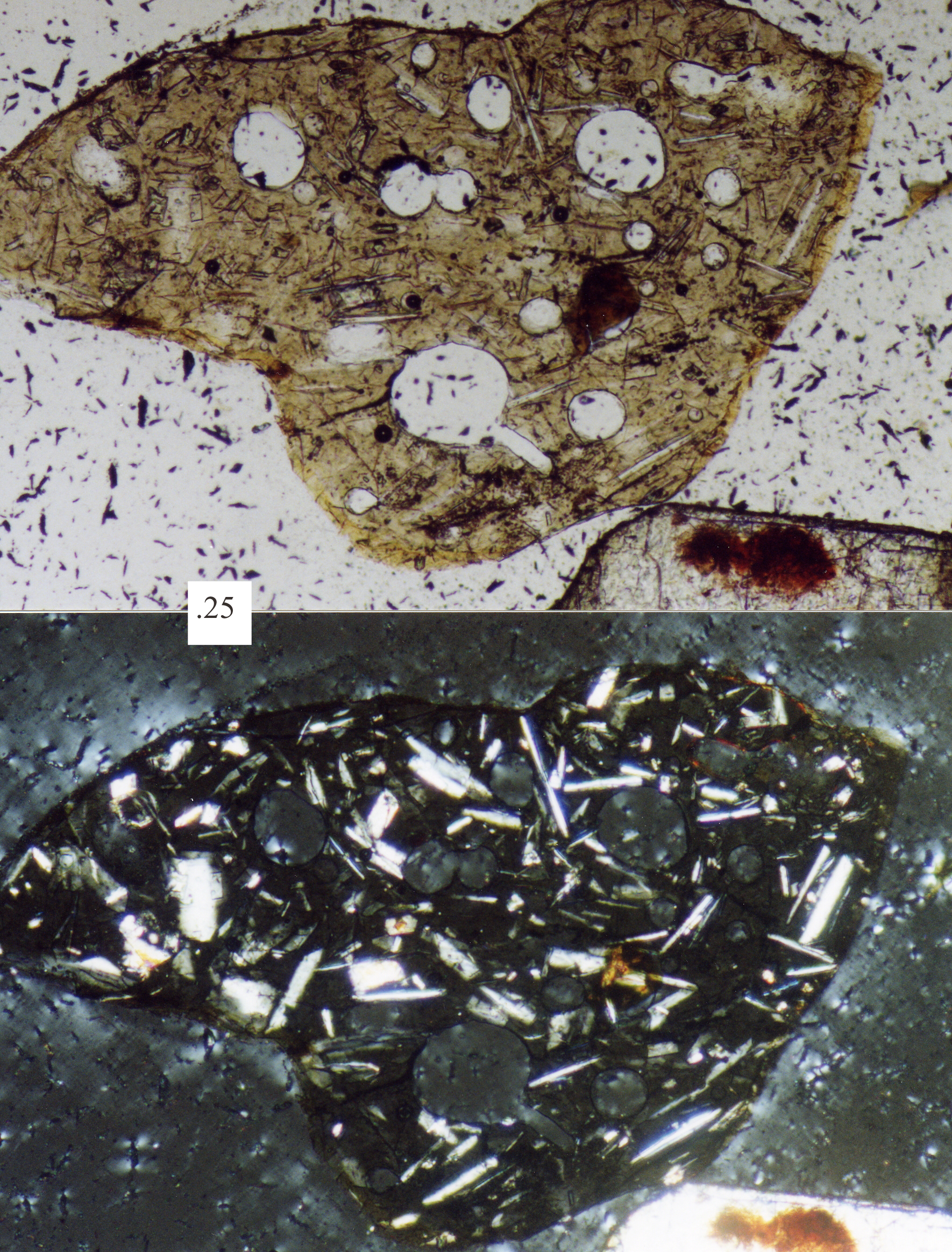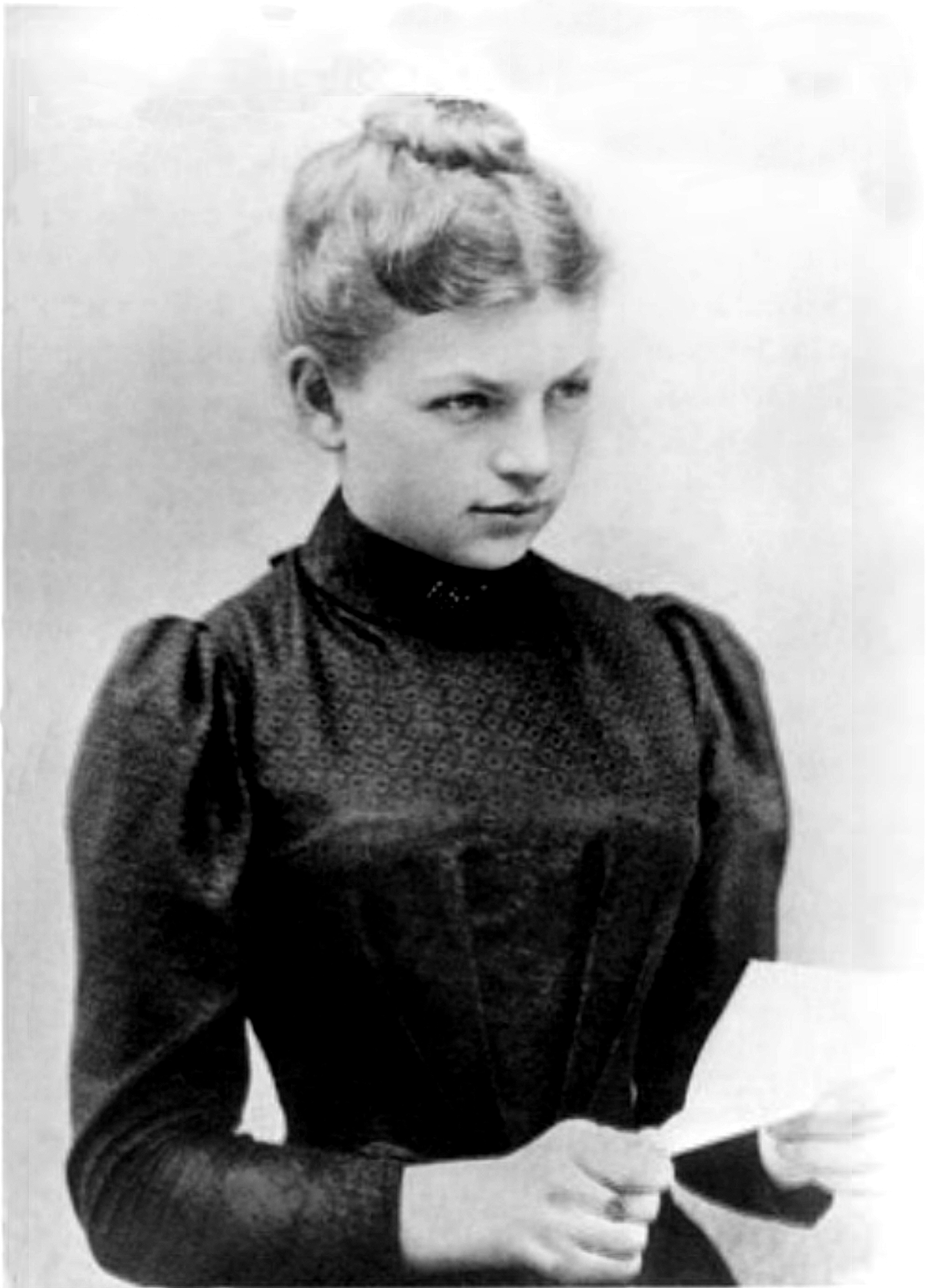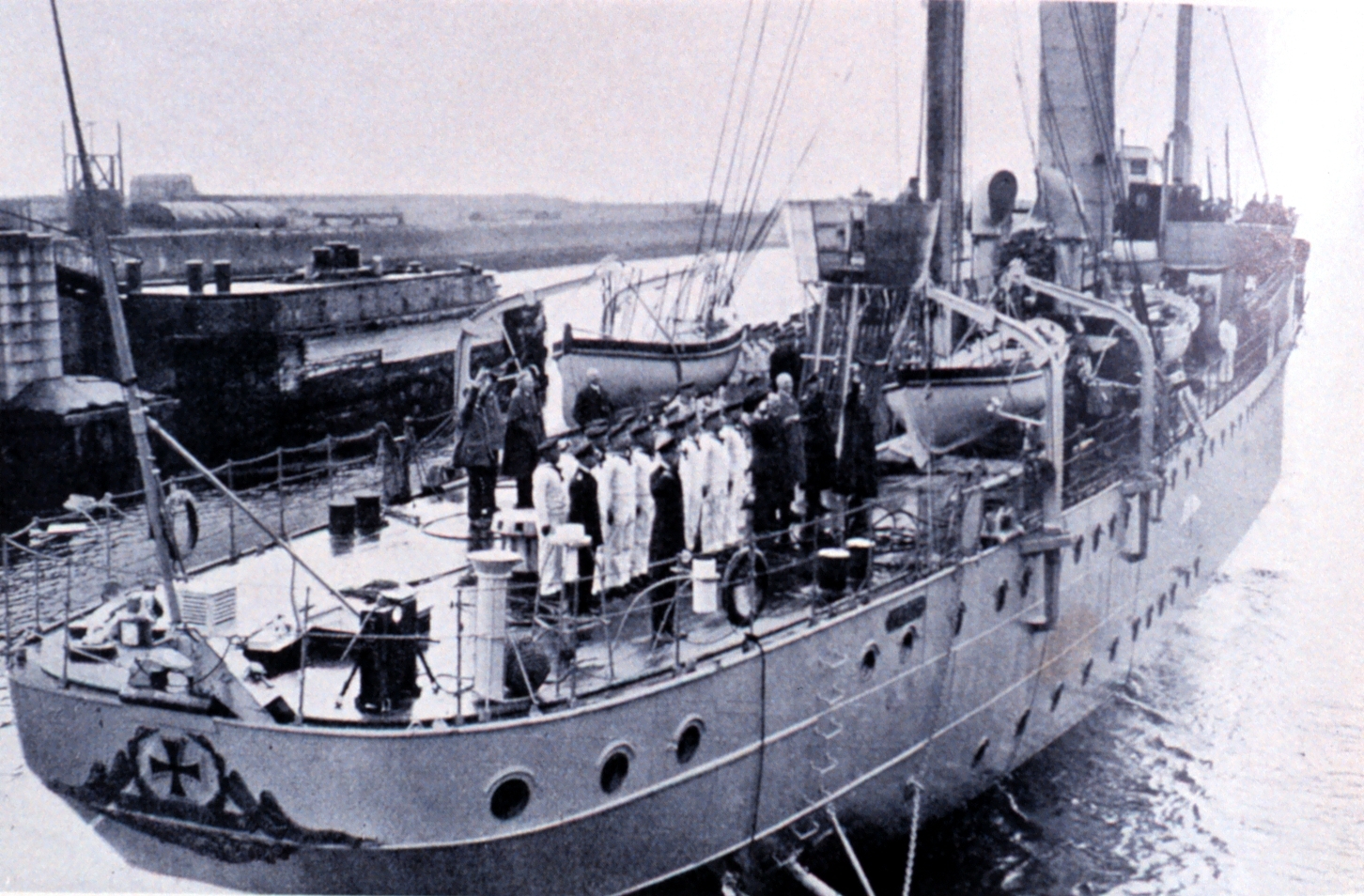|
Carl Wilhelm Correns
Carl Wilhelm Correns (19 May 1893 – 29 August 1980) was a German geologist who pioneered the field of sedimentary petrology. He was noted as an influential teacher and for his textbook ''Einführung in die Mineralogie'' (1949). Correns received the Roebling Medal of the Geological Society of America in 1976. Correns was born in Tübingen to botanists Carl Erich Correns and Elisabeth Widmer. He went to the universities of Tübingen and Münster with an interruption during World War I. After serving as a reserve officer, he returned to complete his PhD at the University of Berlin in 1920. His thesis supervised by J.F. Pompecki was on petrography and paleontology of Devonian limestone. He was inspired by the book ''Lehrbuch der Mineralogie'' by Paul Niggli that he came across in Christmas of 1920 and attended seminars by Arrien Johnsen at Berlin. He joined the Prussian Geological Survey from 1922 to 1926 after serving as an assistant to Erich Kaiser at the University of Munich. ... [...More Info...] [...Related Items...] OR: [Wikipedia] [Google] [Baidu] |
Sedimentary Petrology
Petrology () is the branch of geology that studies rocks and the conditions under which they form. Petrology has three subdivisions: igneous, metamorphic, and sedimentary petrology. Igneous and metamorphic petrology are commonly taught together because they both contain heavy use of chemistry, chemical methods, and phase diagrams. Sedimentary petrology is, on the other hand, commonly taught together with stratigraphy because it deals with the processes that form sedimentary rock. Background Lithology was once approximately synonymous with petrography, but in current usage, lithology focuses on macroscopic hand-sample or outcrop-scale description of rocks while petrography is the speciality that deals with microscopic details. In the petroleum industry, lithology, or more specifically mud logging, is the graphic representation of geological formations being drilled through and drawn on a log called a mud log. As the cuttings are circulated out of the borehole, they are samp ... [...More Info...] [...Related Items...] OR: [Wikipedia] [Google] [Baidu] |
Herbert Freundlich
Herbert Max Finlay Freundlich (28 January 1880 in Charlottenburg – 30 March 1941 in Minneapolis) was a German chemist. His father was of German Jewish descent, and his mother ( Finlay) was from Scotland. His younger brother was Erwin Finlay Freundlich (1885–1964). He was a department head at the Kaiser Wilhelm Institute for Physical Chemistry and Electrochemistry (now the Fritz Haber Institute) from 1919 until 1933, when the racial policies of the Nazi party demanded the dismissal of non-Aryans from senior posts. In 1934 he became a foreign member of the Royal Netherlands Academy of Arts and Sciences. Emigrating to England, Freundlich accepted a guest professorship at University College London. Five years later, he accepted a professorship at the University of Minnesota. He died in Minneapolis two years later. Freundlich's main works dealt with the coagulation and stability of colloidal solutions. His most prominent student was Robert Havemann who became a well kn ... [...More Info...] [...Related Items...] OR: [Wikipedia] [Google] [Baidu] |
1980 Deaths
__NOTOC__ Year 198 (CXCVIII) was a common year starting on Sunday (link will display the full calendar) of the Julian calendar. At the time, it was known as the Year of the Consulship of Sergius and Gallus (or, less frequently, year 951 '' Ab urbe condita''). The denomination 198 for this year has been used since the early medieval period, when the Anno Domini calendar era became the prevalent method in Europe for naming years. Events By place Roman Empire *January 28 **Publius Septimius Geta, son of Septimius Severus, receives the title of Caesar. **Caracalla, son of Septimius Severus, is given the title of Augustus. China *Winter – Battle of Xiapi: The allied armies led by Cao Cao and Liu Bei defeat Lü Bu; afterward Cao Cao has him executed. By topic Religion * Marcus I succeeds Olympianus as Patriarch of Constantinople (until 211). Births * Lu Kai (or Jingfeng), Chinese official and general (d. 269) * Quan Cong, Chinese general and advisor ( ... [...More Info...] [...Related Items...] OR: [Wikipedia] [Google] [Baidu] |
1893 Births
Events January–March * January 2 – Webb C. Ball introduces railroad chronometers, which become the general railroad timepiece standards in North America. * Mark Twain started writing Puddn'head Wilson. * January 6 – The Washington National Cathedral is chartered by Congress; the charter is signed by President Benjamin Harrison. * January 13 ** The Independent Labour Party of the United Kingdom has its first meeting. ** U.S. Marines from the ''USS Boston'' land in Honolulu, Hawaii, to prevent the queen from abrogating the Bayonet Constitution. * January 15 – The ''Telefon Hírmondó'' service starts with around 60 subscribers, in Budapest. * January 17 – Overthrow of the Kingdom of Hawaii: Lorrin A. Thurston and the Citizen's Committee of Public Safety in Hawaii, with the intervention of the United States Marine Corps, overthrow the government of Queen Liliuokalani. * January 21 ** The Cherry Sisters first perform in Marion, Iowa. ** The T ... [...More Info...] [...Related Items...] OR: [Wikipedia] [Google] [Baidu] |
University Of Rostock
The University of Rostock (german: link=no, Universität Rostock) is a public university located in Rostock, Mecklenburg-Vorpommern, Germany. Founded in 1419, it is the third-oldest university in Germany. It is the oldest university in continental northern Europe and the Baltic Sea area, and 8th oldest in Central Europe. It was the 5th university established in the Holy Roman Empire. The university has been associated with five Nobel laureates: Albrecht Kossel, Karl von Frisch, Otto Stern, Pascual Jordan, and Walter H. Schottky. It is a member of the European University Association. According to a ranking published by ''Times Higher Education'' in 2018, it is the most beautiful university in Germany and the fourth most beautiful university in all of Europe. The language of instruction is usually German and English for some postgraduate studies. History The university was founded in 1419 by confirmation of Pope Martin V and thus is one of the oldest universities in Northern ... [...More Info...] [...Related Items...] OR: [Wikipedia] [Google] [Baidu] |
Fritz Haber
Fritz Haber (; 9 December 186829 January 1934) was a German chemist who received the Nobel Prize in Chemistry in 1918 for his invention of the Haber–Bosch process, a method used in industry to synthesize ammonia from nitrogen gas and hydrogen gas. This invention is important for the large-scale synthesis of fertilisers and explosives. It is estimated that one-third of annual global food production uses ammonia from the Haber–Bosch process, and that this supports nearly half of the world's population. Haber, along with Max Born, proposed the Born–Haber cycle as a method for evaluating the lattice energy of an ionic solid. Haber, a known German nationalist, is also considered the "father of chemical warfare" for his years of pioneering work developing and weaponising chlorine and other poisonous gases during World War I, especially his actions during the Second Battle of Ypres. His work was later also used to develop Zyklon B, used for the murder of more than 1 million of ... [...More Info...] [...Related Items...] OR: [Wikipedia] [Google] [Baidu] |
German Meteor Expedition
The German Meteor expedition (German: ''Deutsche Atlantik Expedition'') was an oceanographic expedition that explored the South Atlantic ocean from the equatorial region to Antarctica in 1925–1927. Depth soundings, water temperature studies, water samples, studies of marine life and atmospheric observations were conducted.Stein Expedition The survey vessel left Wilhelmshaven on 16 April 1925 with the oceanographer Alfred Merz in charge of the expedition.Nieder and Schroeder The ship zigzagged between Africa and South America and took echo soundings of the South Atlantic between 20° North and 60° South. In January 1926 the Strait of Magellan was transited; in March the same year a seamount was found and named ''Meteor Bank'' (). In June 1926 Merz, who already had health problems before the start of the expedition, was hospitalised at the German Hospital in Buenos Aires. He died of pneumonia on 25 August 1926. The overall lead of the expedition was assumed by the ship's c ... [...More Info...] [...Related Items...] OR: [Wikipedia] [Google] [Baidu] |
Arrien Johnsen
Arrien (; oc, Arrien) is a commune in the Pyrénées-Atlantiques department in the Nouvelle-Aquitaine region of south-western France. Geography Arrien is located some 18 km east by north-east of Pau and 5 km west of Séron. Access to the commune is by road D42 from Sedzère in the north passing through the heart of the commune east of the village and continuing south to Eslourenties-Daban. The D145 also comes from Baleix in the north and joins the D42 in the commune then continues south-west to Lourenties. Access to the village (Town Hall) is by the Chemin de l'Eglise going west from the D42 and by other local roads. Apart from some patches of forest on the western border the commune is entirely farmland. The ''Canne'' stream forms the southern border of the commune joining the '' Gabas'' at the south-western corner which in turn forms most of the western border of the commune flowing north-west then north eventually joining the ''Adour'' near Toulouzette. The ''Po ... [...More Info...] [...Related Items...] OR: [Wikipedia] [Google] [Baidu] |
Roebling Medal
The Roebling Medal is the highest award of the Mineralogical Society of America for scientific eminence as represented primarily by scientific publication of outstanding original research in mineralogy. The award is named for Colonel Washington A. Roebling (1837–1926) who was an engineer, bridge builder, mineral collector, and significant friend of the Mineralogical Society of America. It is awarded for scientific eminence represented by scientific publication of outstanding original research in mineralogy. The recipient receives an engraved medal and is made a Life Fellow of the Mineralogical Society. Roebling Medal Recipients The recipients of the medal are: *1937 – Charles Palache *1938 – Waldemar T. Schaller *1940 – Leonard James Spencer *1941 – Esper S. Larsen Jr. *1945 – Edward Henry Kraus *1946 – Clarence S. Ross *1947 – Paul Niggli *1948 – William Lawrence Bragg *1949 – Herbert E. Merwin *1950 – Norman L. Bowen *1952 – Frederick E. Wright *1 ... [...More Info...] [...Related Items...] OR: [Wikipedia] [Google] [Baidu] |
Paul Niggli
Paul Niggli (26 June 1888 – 13 January 1953) was a Swiss crystallographer, mineralogist, and petrologist who was a leader in the field of X-ray crystallography. Education and career Niggli was born in Zofingen and studied at the Swiss Federal Institute of Technology (ETH) in Zurich and the University of Zurich, where he obtained a doctorate. His 1919 book, ''Geometrische Kristallographie des Diskontinuums'', played a seminal role in the refinement of space group theory. In this book, Niggli demonstrated that although X-ray reflection conditions do not always uniquely determine the space group to which a crystal belongs, they do reveal a small number of possible space groups to which it could belong. Niggli used morphological methods to account for internal structure and, in his 1928 ''Kristallographische und Strukturtheoretische Grundbegriffe,'' he took up what is essentially the reverse process, the task of establishing the connection between space lattices and external cry ... [...More Info...] [...Related Items...] OR: [Wikipedia] [Google] [Baidu] |
Josef Felix Pompeckj
Josef Felix Pompeckj (May 10, 1867, Groß-Köllen – July 8, 1930, Berlin) was a German paleontologist and geologist. He was born in Groß-Köllen (now Kolno in Poland). He studied geology and paleontology at the University of Königsberg, receiving his doctorate in 1890 with the thesis ''Die Trilobitenfauna der ost- und westpreußischen Diluvialgeschiebe''. In 1903 he became an associate professor in Munich, and from 1904 taught classes in geology and mineralogy at the agricultural college in Hohenheim.Pompeckj, Josef Felix In: (NDB). Band 20, Duncker & Humblot, Berlin 2001, , S. 613 f. In 1907 he relocated to the |




